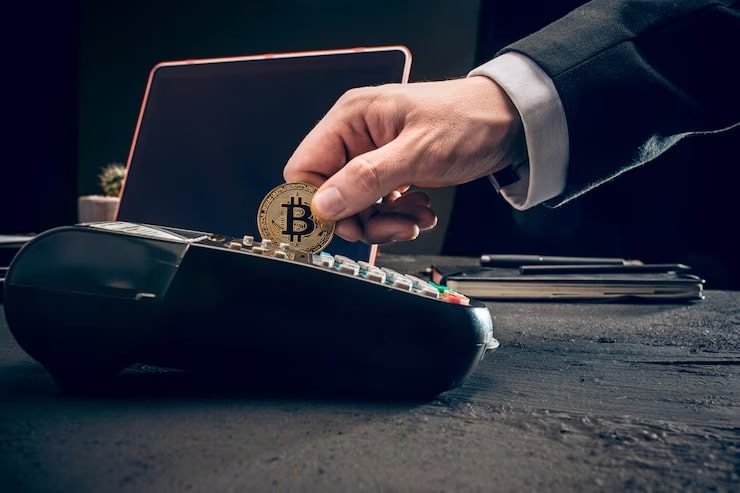Feeling stuck in the financial stone age with traditional banks calling the shots? Decentralized Finance (DeFi) might be the game-changer you’ve been waiting for. DeFi is shaking up the financial world by offering a borderless, permissionless alternative to the status quo. But what exactly is it, and how is it disrupting the financial game? Buckle up and get ready to deep dive into the world of DeFi.
Decentralized Finance: Ditching the Middleman
DeFi is essentially a global, peer-to-peer financial system built on blockchain technology. Unlike traditional banks, there’s no central authority controlling your money. Instead, DeFi utilizes smart contracts, self-executing agreements that automate financial transactions. Think of it as a financial playground where you can borrow, lend, invest, and trade without the gatekeepers of traditional finance.
The Allure of DeFi: Why It’s Gaining Traction
Decentralized Finance is attracting a growing audience for several reasons:
Accessibility: Anyone with an internet connection can participate in DeFi, regardless of location or financial background. This is a major win for the unbanked and underbanked populations around the world.
Transparency: DeFi transactions are recorded on a public blockchain ledger, boosting transparency and trust. You can always track your money and see exactly how it’s being used.
Innovation: The DeFi space is buzzing with innovation. New financial products and services are constantly emerging, offering users a wider range of options.
Reduced Fees: By cutting out the middleman, DeFi often offers lower transaction fees compared to traditional financial institutions.
Table: Traditional Finance vs. Decentralized Finance
| Feature | Traditional Finance | Decentralized Finance (DeFi) |
| Control | Centralized institutions control access and regulations | Users have complete control over their funds |
| Accessibility | Limited access for some, especially the unbanked | Anyone with an internet connection can participate |
| Transparency | Limited transparency in transactions | All transactions are recorded on a public blockchain ledger |
| Innovation | Slower rate of innovation | Rapid pace of innovation with new products and services |
| Fees | Often high transaction fees | Lower transaction fees due to reduced overhead costs |
Exploring the DeFi Ecosystem: What’s on the Menu?
Decentralized Finance offers a diverse range of financial services, making it a one-stop shop for your financial needs. Here are some of the prime options:
Decentralized Exchanges (DEXs): Trade cryptocurrencies directly with other users, cutting out the middleman of traditional exchanges.
Lending and Borrowing: Earn interest on your crypto holdings by lending them to others, or borrow crypto at competitive rates.
Yield Farming: Invest your crypto assets into liquidity pools to earn passive income. (Warning: This can be risky, so do your research!)
Decentralized Insurance (DeFi Insurance): Protect your crypto assets against hacks or other unforeseen events.
The Flip Side of the Coin: Potential Risks of DeFi
DeFi is stillin its early stages, and there are some potential risks to consider:
Volatility: The crypto market is inherently volatile, and Decentralized Finance products are no exception. Be prepared for potential losses.
Security Risks: DeFi protocols can be vulnerable to hacks and scams. Always do your research before investing in any DeFi product.
Regulation: The regulatory landscape surrounding DeFi is still evolving. This can create uncertainty for users.
Navigating the DeFi Landscape: Tips for Getting Started
DeFi might seem intimidating at first, but with some research and caution, you can explore its potential. Here are some tips:
Educate Yourself: Before diving in, educate yourself on how Decentralized Finance works, the different protocols available, and the associated risks.
Start Small: Keep your investments within your risk budget. Start with a small amount and gradually increase your involvement as you gain experience.
Use a Reputable Wallet: Choose a secure and reputable crypto wallet to store your digital assets.
Conclusion
DeFi’s rapid growth and innovation are empowering financial inclusion, reducing transaction costs, and increasing the efficiency and security of financial transactions. However, the nascent industry also faces significant challenges, including regulatory uncertainty, technical vulnerabilities, and scalability issues. Addressing these challenges will be crucial for the sustainable development and mainstream adoption of DeFi.
Ultimately, DeFi represents a paradigm shift in how financial services are delivered and consumed, fostering a more inclusive and resilient global financial system. As the technology matures and regulatory frameworks evolve, DeFi has the potential to redefine the future of finance, making it more accessible, equitable, and efficient for everyone.







